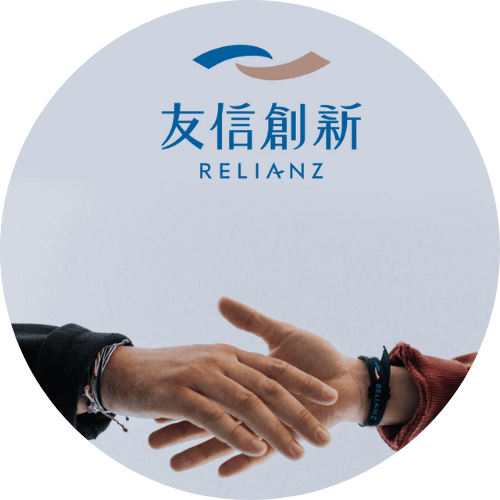How to register a foreign company in Taiwan (or setup as a foreign individual)

RELIANZ | Editorial Team
Editor
We are a team of consultants with expertise in accounting and startups, dedicated to turning complex regulations into practical knowledge. Backed by real-world experience, we also provide essential guidance for foreign companies looking to establish a presence in Taiwan. Our goal is to offer clear, trustworthy insights and be your reliable partner on the road to entrepreneurship.
Taiwan’s strong consumer culture, proximity to regional power houses, and friendly relations with its neighbors has drawn many foreign investments from around the world. As of September 2024, there are over 27,000 foreign owned businesses registered in Taiwan.
Registering in Taiwan can be complicated proceduraly, and even harder due to the language barrier. Follow our step-by-step guide to understand how to register your business in Taiwan:
Step 1: Company name reservation
In order to register in Taiwan, one must first search the company registry to see if the desired name is available.
A legal company name in Taiwan must be in Chinese, foreign alphabets and numbers aren’t allowed.
Generally, there are two types of business structures in Taiwan. A business is either an unlimited company (行號) or a limited company (公司). The application must be sent to the correct institution.
Step 2: Open a temporary business bank account
In order to file for company registration, a temporary bank account has to be opened first. Some banks in Taiwan are not foreigner friendly, so it is generally recommended that the account be opened at a bank that you are already familiar with in your home country.
In order to open a temporary business bank account in Taiwan, the responsible person will need to go to the bank in person, with the following:
The responsible person is the official representative or owner of the company, and must be a person, or a personal representative of the foreign entity which owns the company
Step 3: File an investment application with the MOEA-IR
The Department of Investment Review of the Ministry of Economic Affairs (MOEA-IR) is a central institution which oversees all foreign investments into Taiwan. Its approval is needed for any foreign owned business, of all sizes, to legally register in Taiwan.
READ MORE : How to file for an investment application with the MOEA-IR?
Step 4: Capital Remittance
Once the MOEA-IR has approved the investment, the business may now receive foreign capital. The capital must be remitted to the temporary business bank account under 310 DIRECT INVESTMENT BY FOREIGN NATIONALS OR OVERSEAS CHINESE
Step 5: Investment verification
Once the capital has been remitted successfully, an Investment Verification application must be filed with the MOEA-IR within 2 months of the remittance.
- Copy of the official remittance letter from the bank
- Copy of the post settlement transfer receipt
- Copy of the official remittance letter from the bank
- Copy of the post settlement transfer receipt
Step 6: Signing of incorporation documents
If you are a sole owner, this is a very simple process. However, if you have multiple board members that are spread across the globe, then it can be both time consuming and cumbersome.
All signatures will need to be in ink, and in original.
Step 7: Capital verification by Taiwan CPA
The MOEA requires that all company registered in Taiwan must include a Capital Verification Report by a qualified CPA. This is done in order to comply with internationl Anti-Money-Laundering (AML) regulations. If any or all of the funds came in contact with a sanctioned entity or otherwise obtained through illegal means, then the CPA will not sign off on the report, as per required by the Certified Public Accountants Act
It is customary for CPAs to have a tiered fee structure based on the amount of capital, as the risk increases proportionally to the amount
Step 8: Company registration application
Once all the documents signed and all the permits received, the company can now proceed to file a registration application with the local city government.
Registered addresses in Taipei further requires a Taipei Address Pre-check to be done prior to submitting the registry application
Upon approval, the company will receive an official registration number.
Step 9: GUI registration
After the company has received its official registration number, the company will receive an interview request from the National Tax Bureau (NTB), sent via mail to the registered address.
Step 10: Interview with the NTB
Upon receiving the interview request, the responsible person (or the appointed CPA) should contact the tax office and make an appointment with the designated POC.
If there are more than a few registered business items, then it s imperative that responsible person rehearses the interview with the appointed CPA first, as the result of this interview will determine the tax bracket for the company.
At the end of the interview, the NTB will issue a Government Uniform Invoice (GUI) ID (A.K.A. Tax ID) for the company.
Step 11: eGUI application
The company can now apply for an eGUI (The “E” stands for Electronic) service. This will allow the company to issue invoices under the official registration number.
Step 12: Opening a permanent company bank account
The business can now apply for a permanent bank account with a bank of choice. Some banks may require at least one 401 (VAT filing) document, whereas some other banks may require a minimum deposit. It is important to clarify the specific requirements with the bank first.
The responsible person must visit the branch office in person
If the company is multi-layered, then the bank may ask for additional supporting documents such as an ownership chart.

ABOUT RELIANZ
With years of cross-industry registration experience, especially with foreign companies looking to gain a foothold in the Taiwan market. We intimately understand the challenges faced by foreign companies.
Let RELIANZ handle your company registration and tax filings, so you can focus on growing your business with peace of mind.

I highly recommend RELIANZ’s online setup service—it’s truly different from traditional firms. The convenience of 24/7 online service is incredible; you don’t even need to print and send documents back and forth for signatures. Our case was approved within just one day after submission, which is extremely efficient. The speed of our expansion is also thanks to your support.
Thank you!
ARTICLES
相關閱讀
自用住宅營業登記全攻略:小型創業者、SOHO族必讀指南!
擁有多年跨領域創業經驗,從金融到車業到綠能到電信,我深深了解創業者在草創時期所遇到的種種困難,因此我打造了 RELIANZ...
被查到沒有營業登記怎麼辦?7 個營業登記 Q&A,一次了解
擁有多年跨領域創業經驗,從金融到車業到綠能到電信,我深深了解創業者在草創時期所遇到的種種困難,因此我打造了 RELIANZ...
工商憑證是什麼?新創公司老闆必讀!申請與用途完整指南
擁有多年跨領域創業經驗,從金融到車業到綠能到電信,我深深了解創業者在草創時期所遇到的種種困難,因此我打造了 RELIANZ...




